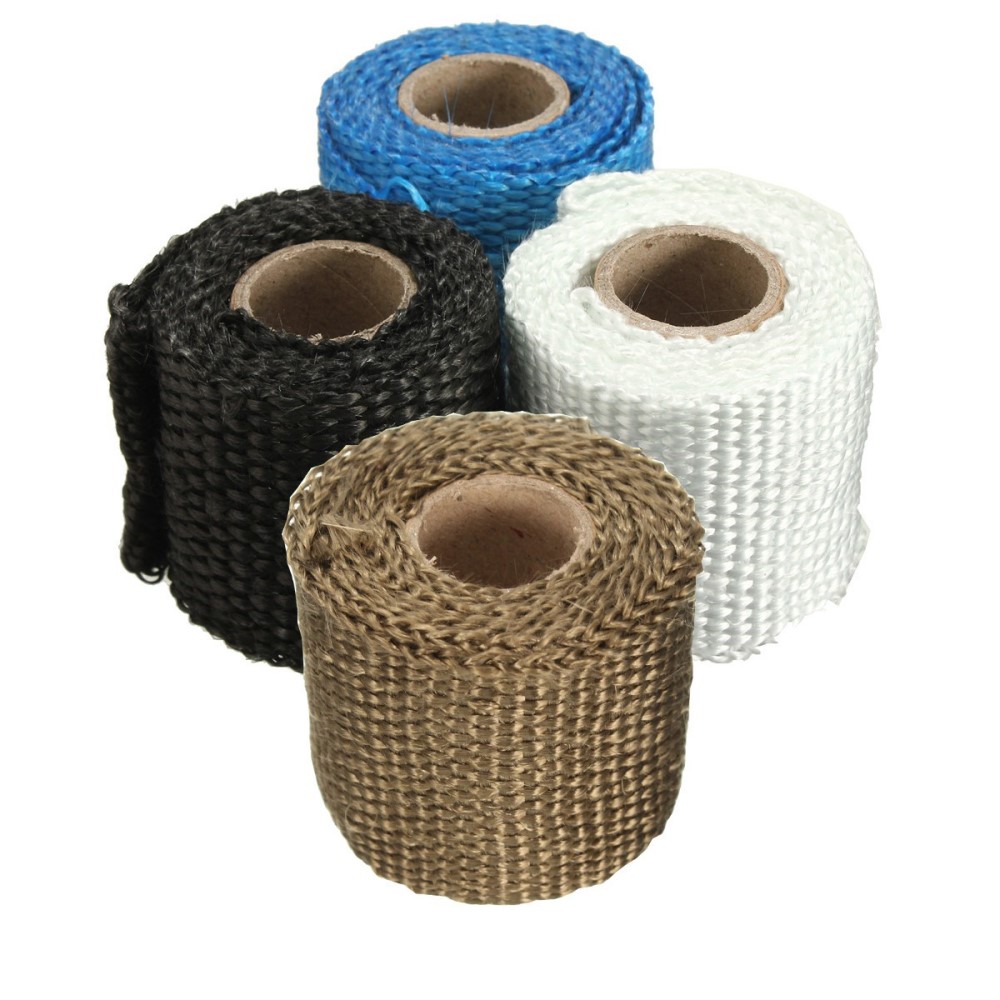If you're serious about improving the performance of your vehicle, managing under-hood temperatures, and increasing exhaust system efficiency, Exhaust Pipe Heat Wrap is a must-have upgrade. Whether you're building a race car, customizing a motorcycle, or maintaining a high-performance off-road vehicle, using the right exhaust insulation wrap can significantly enhance both reliability and performance.
In this guide, we’ll explore what exhaust pipe heat wrap is, how it works, the materials used, real-world benefits, and application tips. By the end, you’ll understand why exhaust pipe heat wrap is an essential component for heat management and how to choose the right product for your needs.

Exhaust pipe heat wrap, also known as exhaust heat tape or exhaust insulation wrap, is a thermal barrier made from high-temperature-resistant materials like fiberglass, basalt, or ceramic fiber. It is designed to wrap around the exhaust manifold, headers, or piping to reduce the amount of radiant heat escaping from the exhaust system.
When properly applied, this wrap keeps more heat within the exhaust gases, which increases exhaust velocity and improves engine scavenging. At the same time, it minimizes heat exposure to nearby components such as hoses, sensors, electrical wiring, and the intake system.
Here are the main benefits of using exhaust pipe heat wrap:
By containing the heat within the exhaust system, heat wraps help lower the temperature in the engine bay. Cooler intake air means more oxygen for combustion, which leads to better performance and fuel efficiency.
Hotter exhaust gases move faster. This increase in exhaust velocity helps improve scavenging—the process of pushing exhaust gases out of the cylinder to make room for the fresh air-fuel mixture. Better scavenging equals better horsepower.
Prolonged exposure to radiant heat can damage nearby components such as plastic hoses, rubber lines, or electrical wiring. Using exhaust pipe insulation wrap acts as a protective layer, extending the lifespan of surrounding parts.
For motorcycles and off-road vehicles, heat wrap reduces radiant heat felt by the rider or passengers, especially in confined engine compartments or when pipes run close to legs and feet.
Heat soak can cause vapor lock, especially in carbureted engines or systems where fuel lines pass near the exhaust. Keeping temperatures down minimizes this risk, particularly in high-performance or hot-weather environments.
One of the most popular and cost-effective options. It withstands continuous temperatures of up to 1000°F (538°C) and is easy to install. Available in black, tan, or white, fiberglass wraps are suitable for most street and moderate performance applications.
Made from natural volcanic rock, basalt wraps offer higher temperature resistance—up to 1472°F (800°C)—and excellent durability. It’s ideal for race cars, turbocharged engines, and high-output motorcycles.
A step above standard fiberglass, ceramic-infused wraps provide improved thermal insulation and can handle up to 2000°F (1093°C) intermittent heat. Perfect for track and heavy-duty applications.
Though not actual titanium, this wrap is typically made from pulverized lava rock woven into a proprietary fabric. It resists up to 1800°F (982°C) continuous and is highly resistant to abrasion and chemicals.
From turbocharged street builds to dragsters, heat wrap enhances airflow, keeps engine compartments cooler, and prevents heat-related failures.
Compact engines and exposed exhausts make motorcycles especially vulnerable to heat. Heat wrap improves rider comfort and protects wiring and hoses.
In rugged terrain and slow-speed operation, heat can build up rapidly. Exhaust wraps help off-roaders avoid vapor lock, reduce cabin heat, and improve durability.
Inboard engines in tight compartments benefit significantly from heat wrap, as it reduces fire hazards and protects other components from radiant heat.
Installing exhaust heat wrap is a straightforward process, but some tips can help ensure success:
Soak the wrap in water before use to make it more pliable and to reduce fraying.
Start at the exhaust header and work your way down. Use a ¼" overlap for optimal coverage.
Secure ends with stainless steel locking ties or hose clamps.
Allow time to dry before starting the engine. The first few heat cycles will cure the wrap and may produce smoke—this is normal.
Wear gloves and a mask, especially when handling fiberglass-based wraps to avoid skin irritation.
When selecting the right exhaust pipe heat wrap, consider:
Operating temperature of your engine
Type of use (street, race, off-road, marine)
Budget vs. performance
Aesthetic preference (color and texture)
Ease of installation
Absolutely. Exhaust pipe heat wrap is one of the most affordable and effective thermal upgrades available. Whether you're looking to unlock more power, protect critical components, or simply reduce heat in the engine bay, a high-quality heat wrap for exhaust pipes delivers measurable improvements.
Not only does it improve performance, but it also adds a clean, race-ready look to your build. Combine it with proper installation and regular inspection, and you’ll get long-term value with little maintenance.